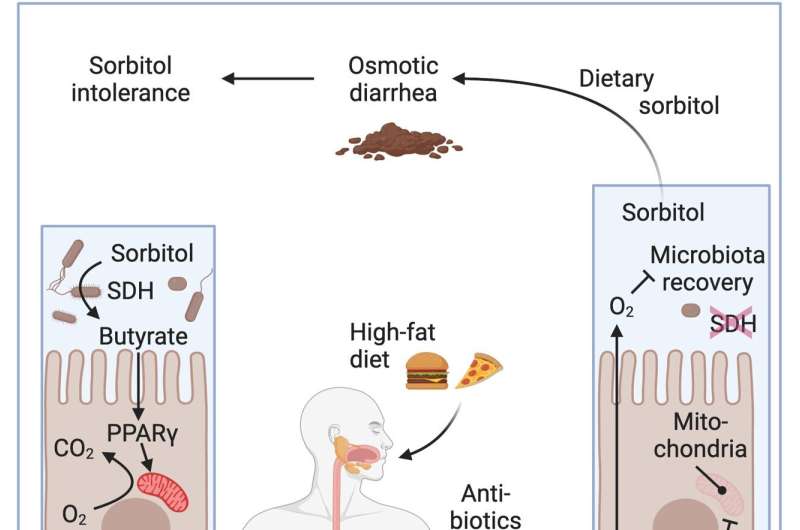
Researchers at UC Davis have made a breakthrough discovery that may explain why some individuals experience digestive issues after consuming sugar-free candy and gum. The study, published in the journal Cell, found that changes in the gut microbiome can lead to an inability to digest sorbitol, a sugar alcohol commonly used in these products.
Understanding Sorbitol Intolerance
Sorbitol intolerance is a condition characterized by bloating, cramps, and diarrhea that occurs when the body is unable to break down sorbitol effectively. Sorbitol is not only found in sugar-free gum and candy but also occurs naturally in various fruits and foods like apricots, apples, and avocados.
The Role of Gut Microbes
The researchers conducted a study using mice to investigate the relationship between gut microbes and sorbitol intolerance. They discovered that taking antibiotics, along with a high-fat diet, reduced the number of Clostridia gut microbes responsible for breaking down sorbitol.
Oxygen Levels in the Gut
The study also revealed that the cells lining the gut used less oxygen when mice were given antibiotics and a high-fat diet. This led to an increase in oxygen levels in the gut, which decreased the presence of Clostridia. Without enough Clostridia, sorbitol could not be broken down effectively.
Restoring Gut Bacteria
The researchers conducted experiments to restore the gut bacteria and its ability to break down sorbitol. They found that feeding the mice a specific gut bacterium called Anaerostipes caccae, which produces butyrate, restored the normal levels of Clostridia. This protected the mice from sorbitol-induced diarrhea, even after the butyrate-producing bacteria were cleared from their digestive system.
Potential Treatment
The study suggests that mesalazine, a drug used to treat inflammatory bowel diseases, may be a potential treatment for sorbitol intolerance in humans. Mesalazine functions similarly to the butyrate-producing bacteria, restoring the low oxygen levels preferred by Clostridia in the intestine.
Implications for Keto-Friendly Foods
The researchers emphasized the importance of their findings, particularly in light of the prevalent use of sorbitol and similar sugar alcohols in keto-friendly diet foods that are high in fat content. Understanding the role of oxygen consumption by the gut's epithelial lining in maintaining a healthy balance of gut bacteria is crucial for proper digestion of certain sugars.
Limitations and Future Research
It's important to note that mice can tolerate much higher levels of sorbitol than humans, and further clinical studies will be needed to test the effectiveness of mesalazine in treating sorbitol intolerance in humans.
This groundbreaking study provides a new starting point for diagnosing, preventing, and treating sorbitol intolerance, according to Andreas Bäumler, senior author of the study. The findings shed light on the intricate relationship between gut microbes, oxygen levels, and the digestion of certain sugars.
Did you miss our previous article...
https://naturesmart.us/health/zapping-the-brain-with-electrical-currents-could-prevent-dementia-symptoms-study-suggests
 HealthWellnessFitnessBeautyVideosPrivacy PolicyTerms And Conditions
HealthWellnessFitnessBeautyVideosPrivacy PolicyTerms And Conditions
